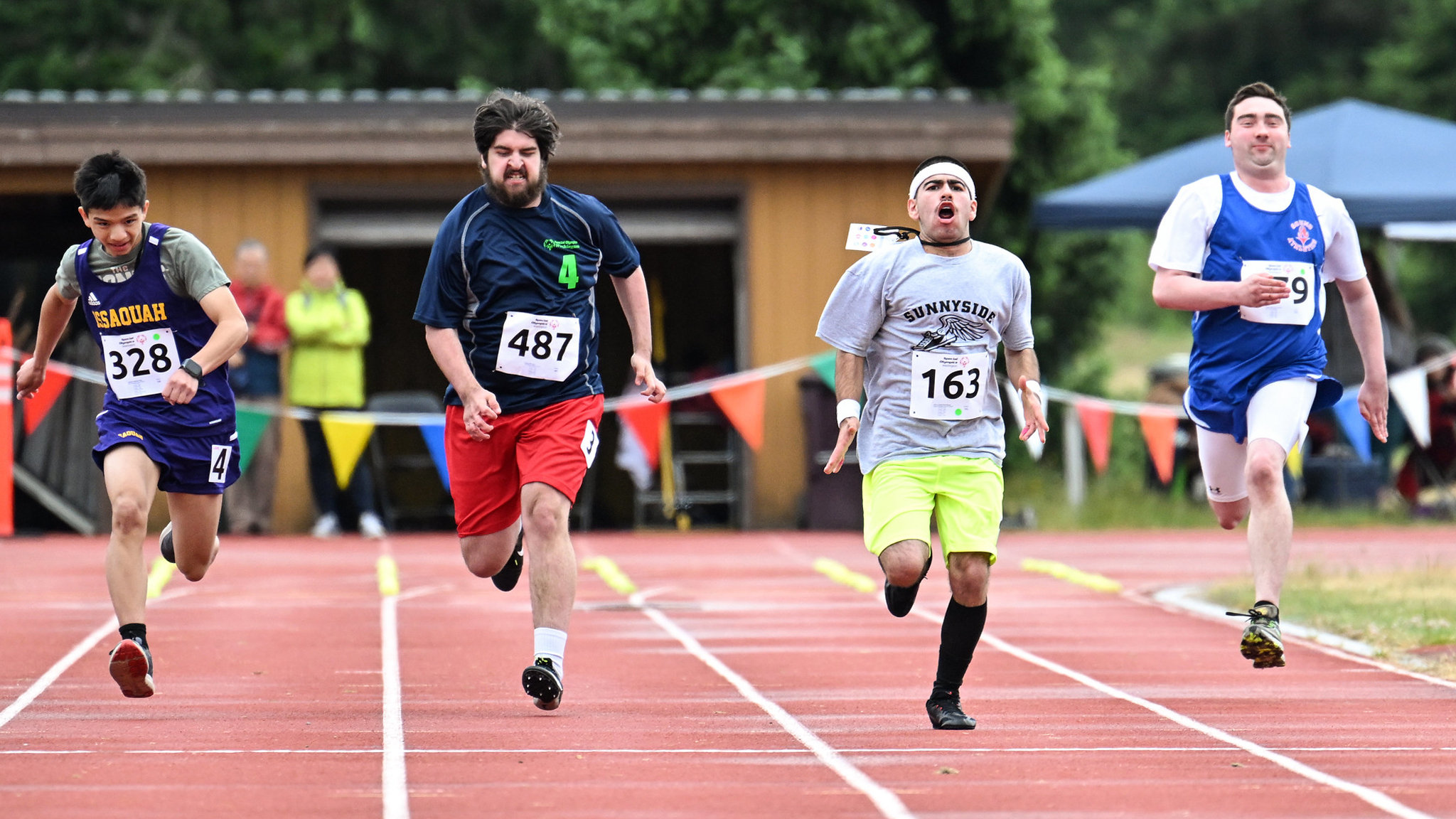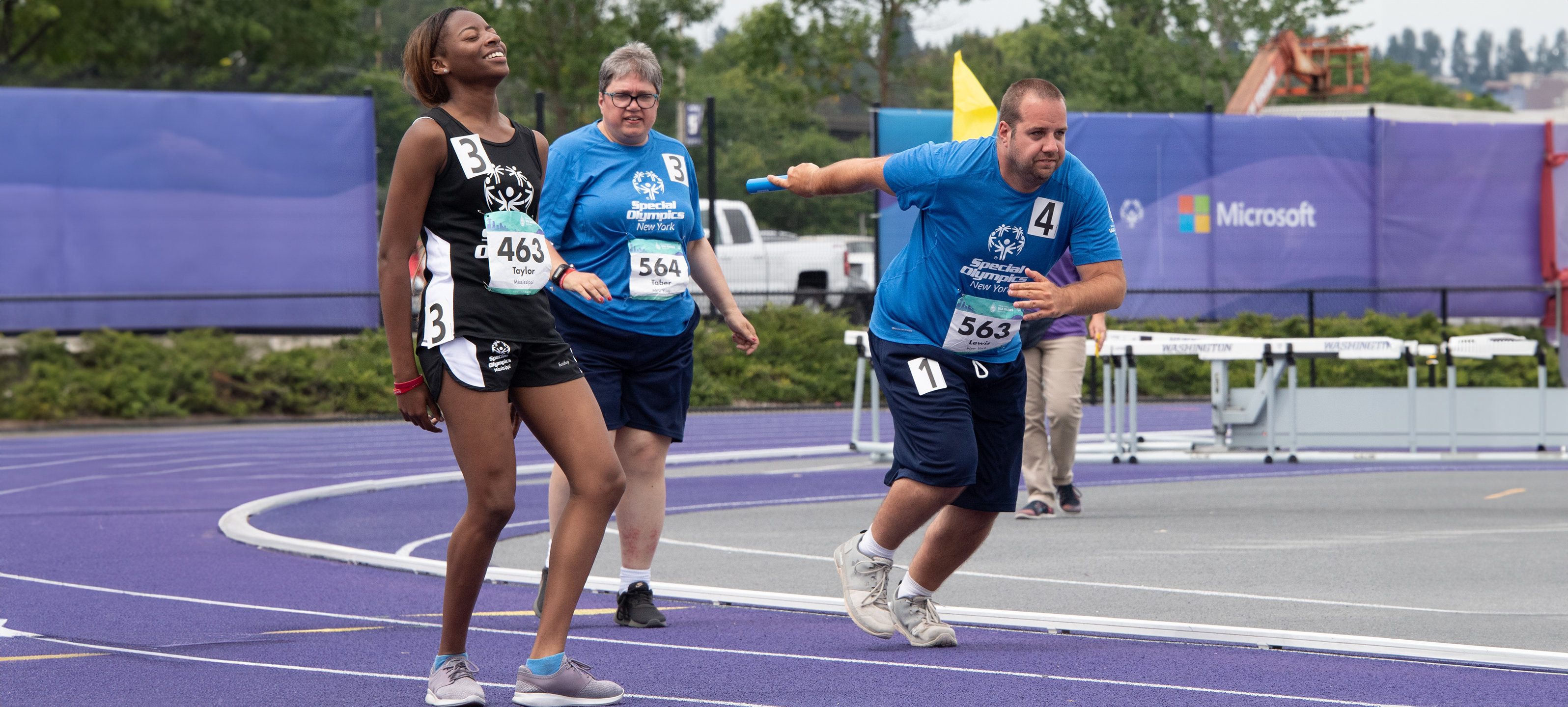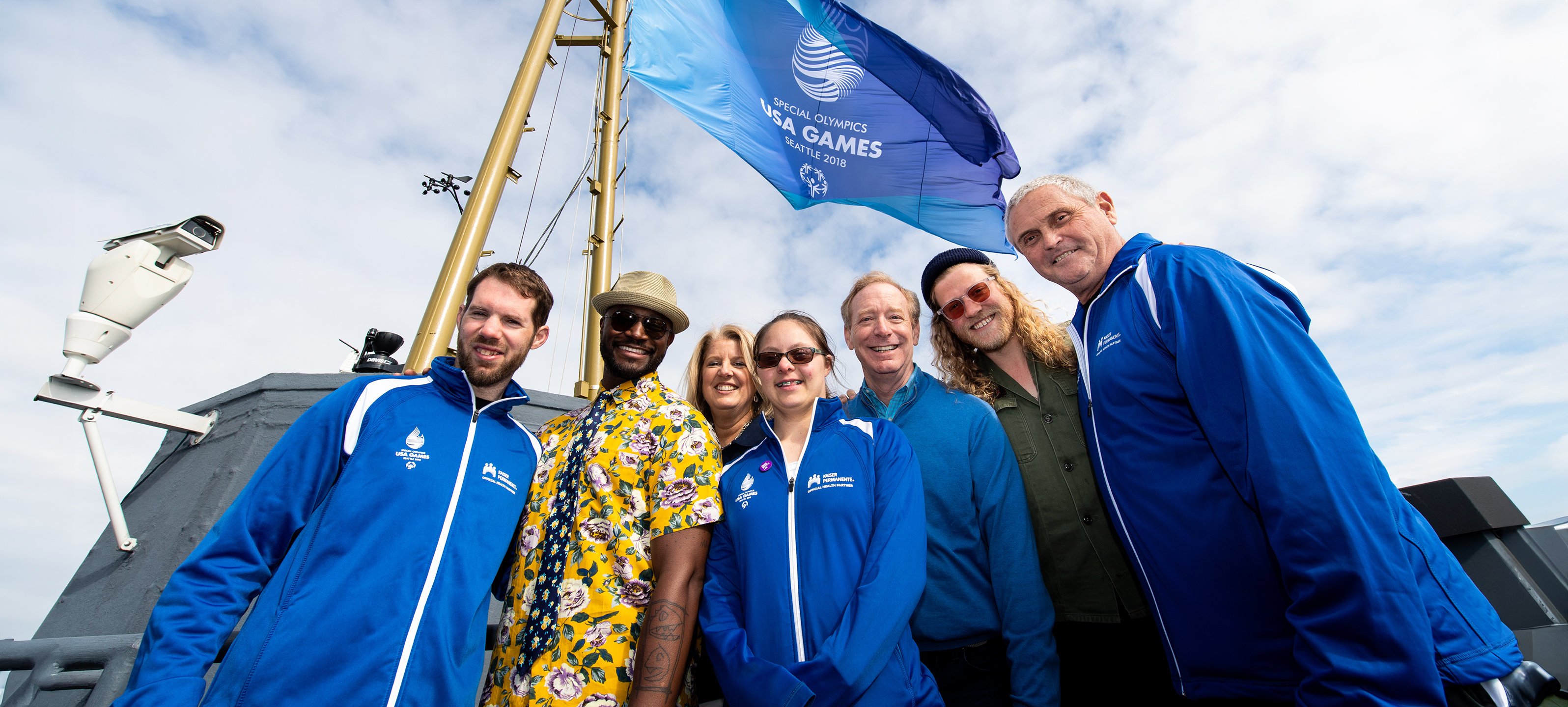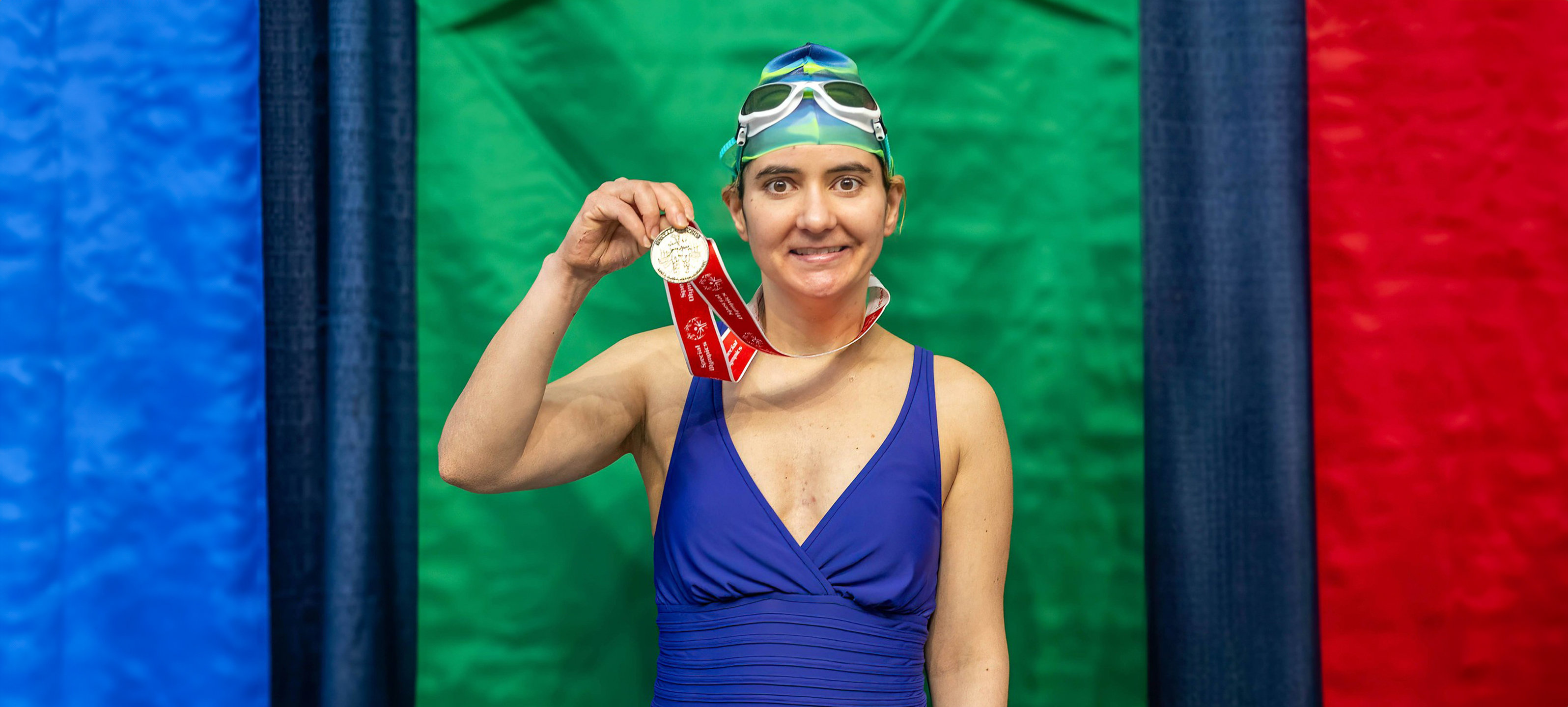
Special Olympics Washington
Learn more about the organization
Special Olympics Washington
Published
Oct 25, 2024
Empowering athletes with disabilities through sports
In front of a roaring crowd, more than 4,000 athletes and coaches opened the 2018 Special Olympics USA Games held in Seattle. One athlete, a paddle boarder named Devon Adelman representing Washington, grinned up at the cheering fans. “It’s a blessing—it's a dream,” she said. In addition to competing for a medal, she had this goal: “To be accepted for who I am.”
The 2018 Games represented what Special Olympics Washington works to achieve every day.
“We know that through the power of sports, athletes build confidence, joy, and leadership. This is a place for folks to be empowered,”
— Mary Do, interim CEO of Special Olympics Washington

Microsoft has supported this nonprofit for decades. It was the premier partner of the 2018 Games, and employees volunteered to make the week-long event unforgettable for athletes, coaches, and families. The company fuels the nonprofit’s ongoing, statewide work through grants and technology support. Microsoft employees remain involved as volunteers, board members, and family members of athletes.
“For all of us at Microsoft, ‘diversity and inclusion’ aren’t just words—they are integral to our mission of empowering every person and organization on the planet to achieve more,” says Microsoft President Brad Smith, who also served as the Special Olympics Honorary Chairman of the 2018 Games.
Both Microsoft and Special Olympics Washington will celebrate their 50th anniversaries in 2025. “It’s so powerful to have transformative, intentional, meaningful partnerships like what we have with Microsoft, who’s with us for the long haul,” Do says.
“We’re focused on continuing to create opportunities for people with intellectual and developmental disabilities for the next 50 years, alongside Microsoft.”

Collaborating for greater belonging
The teamwork that leads to a touchdown, onlookers clapping for a powerlifter’s bench press, and the pre-game huddle on the soccer field all demonstrate how Special Olympics Washington brings people together. “Everyone involved, from volunteers to community partners to corporations, believe that inclusion is important,” Do says. “It’s important that all our athletes feel like they belong.” Special Olympics Washington and Microsoft collaborate to create more opportunities for that feeling through new ways to participate.
During the COVID-19 pandemic, athletes and their circles of care struggled with the isolation and lack of social interaction that resulted from safety measures. To foster friendships through the love of video games, Microsoft and Special Olympics Washington launched Gaming for Inclusion. Now in its fourth year, the virtual tournaments bring together people with and without disabilities around the world to connect through e-sports. "Once I realized you could leverage video games to create positive impact in the world, I knew it was my calling,” says Jenn Panattoni, Xbox’s Head of Gaming Social Impact and Sustainability Marketing and a volunteer who has helped host Special Olympics e-gaming events and build a Minecraft awards ceremony arena for the 2018 Games. “There’s so much good we can do, and we can all make a difference in our own way.”
Microsoft Tech for Social Impact is also providing expertise and technology grants to transform the Special Olympics registration portal. The Microsoft Power Pages- and Dynamics-based platform is removing barriers to participation, making it easier for athletes and volunteers to sign up. Special Olympics Washington is one of the local programs piloting and refining the portal.
“This partnership allows us to be creative, fill gaps, and really serve a purpose,” Do says. “We don’t specialize in all the things, like gaming or development. That’s where Microsoft provides tools, resources, and thought partnership.”

Rebuilding together
Since the post-pandemic return to in-person events, Special Olympics Washington has been working to increase chances to train, play, compete, and strengthen inclusive communities. It is not always easy, though, as the fundraising and philanthropic landscape puts pressure on nonprofits across the board. Do explains, “These are challenges we can work through together. The honest, transparent relationship with Microsoft means the company is with us through bumps in the road on the way to sustainability, to ensure there is no athlete left on the sideline.”
Do is quick to point out that while the Special Olympics movement is certainly fun, its mission is also essential. “It’s sports and competition, but so much more than that. It’s people’s well-being. It’s mental health. It’s friendship,” she says.
As the world’s largest health organization for people with intellectual and developmental disabilities, the nonprofit gathers volunteer medical providers trained to work with diverse populations to provide eye, dental, hearing, and other exams. Athletes may walk away from a competition not only with a medal but also new glasses that enable them to better see the tennis ball or bowling pins.
In addition, participants can exercise their leadership skills through advisory roles. They also gain life skills, such as setting up an email account and applying for jobs after graduation, through collaboration with partners, including Microsoft. “These are opportunities for athletes to lean in, advocate, and have their voice heard,” Do says.
The confidence athletes gain from these practices extends beyond the rink or the court. “The skills we build through a foundation in sports and competition allow athletes to choose their most fulfilling life. In this partnership with Microsoft, we’re cheering for them in whatever direction they want to go. We’re their fans in the stands—on and off the field.”
One Future

Our commitment

